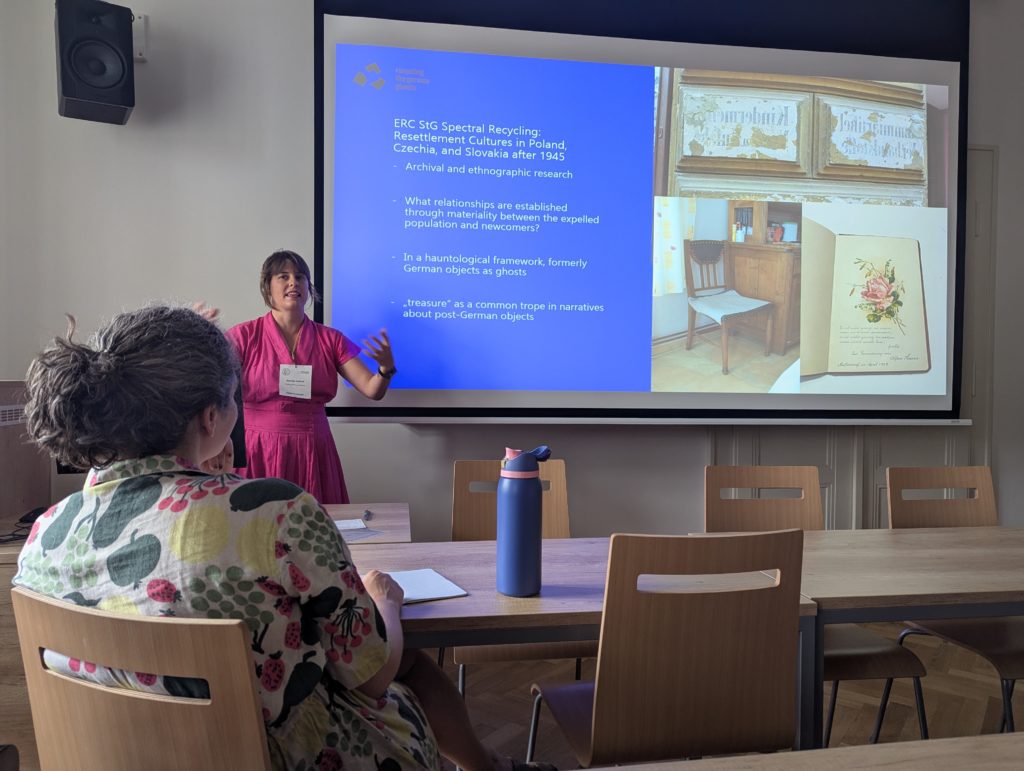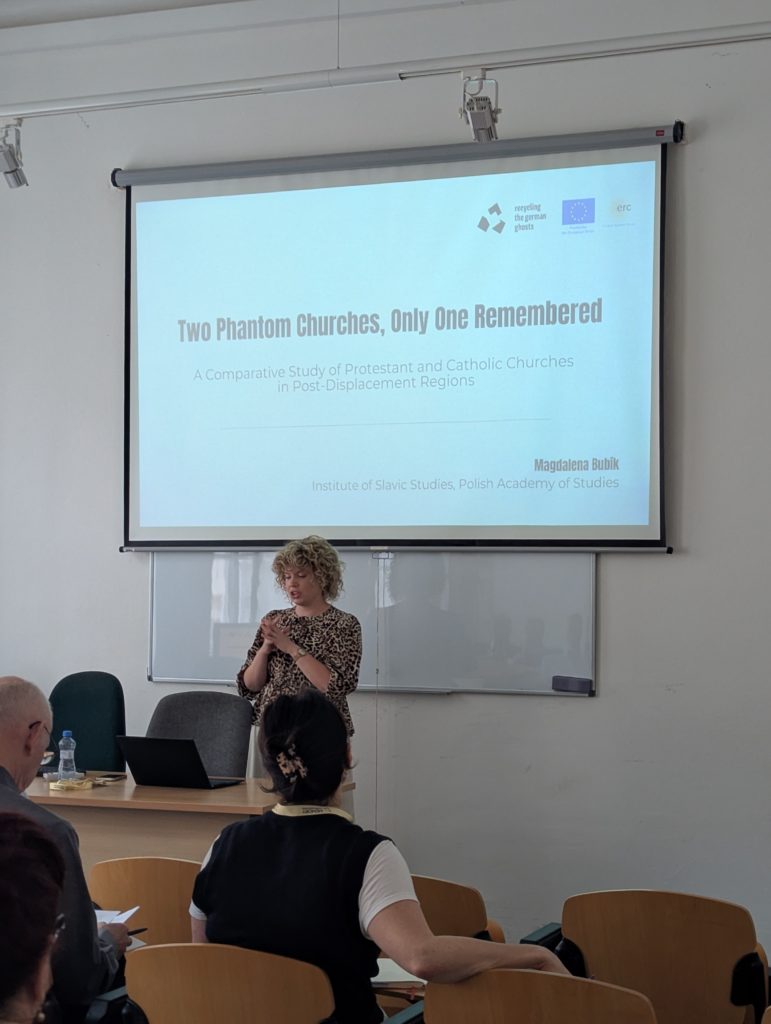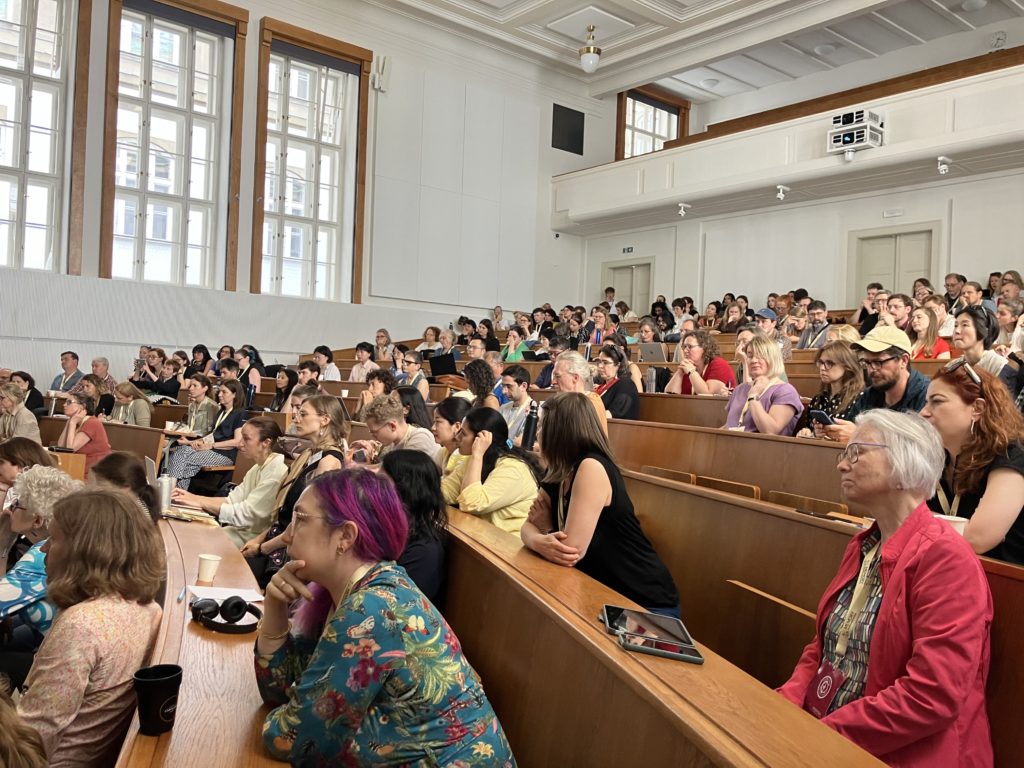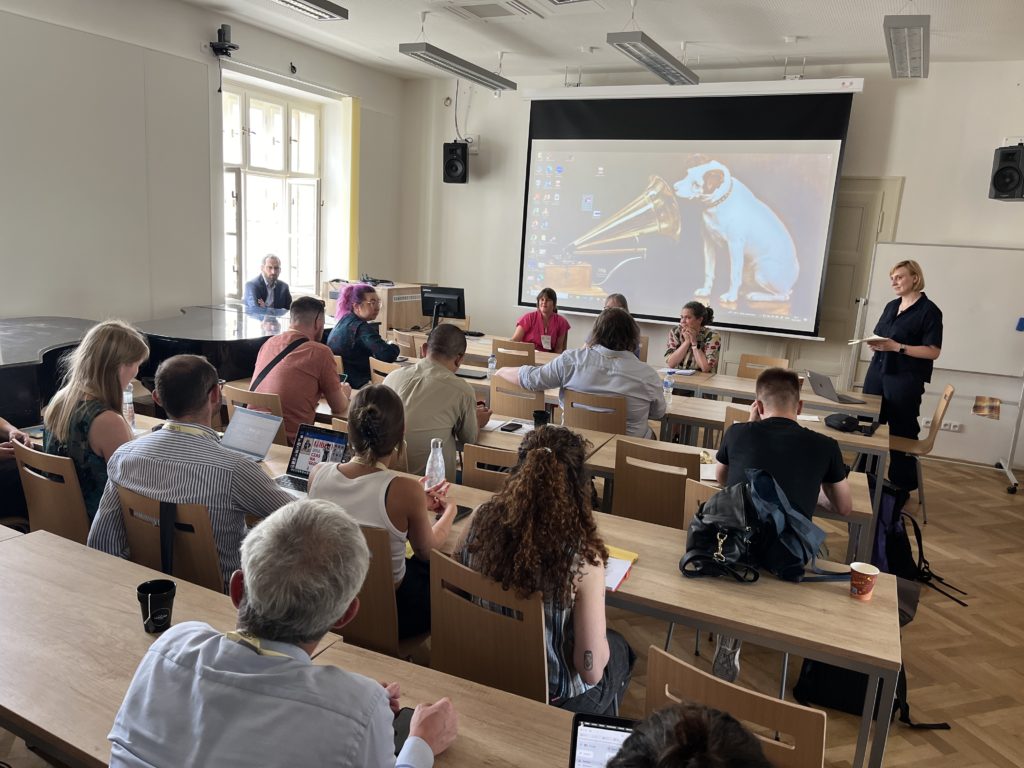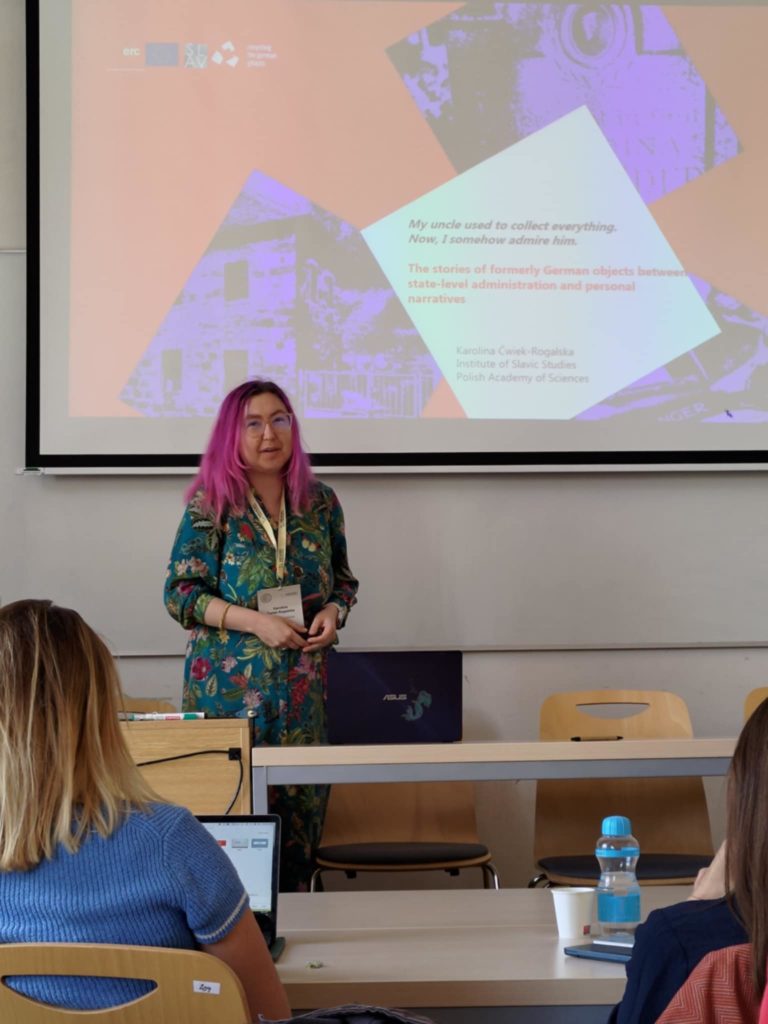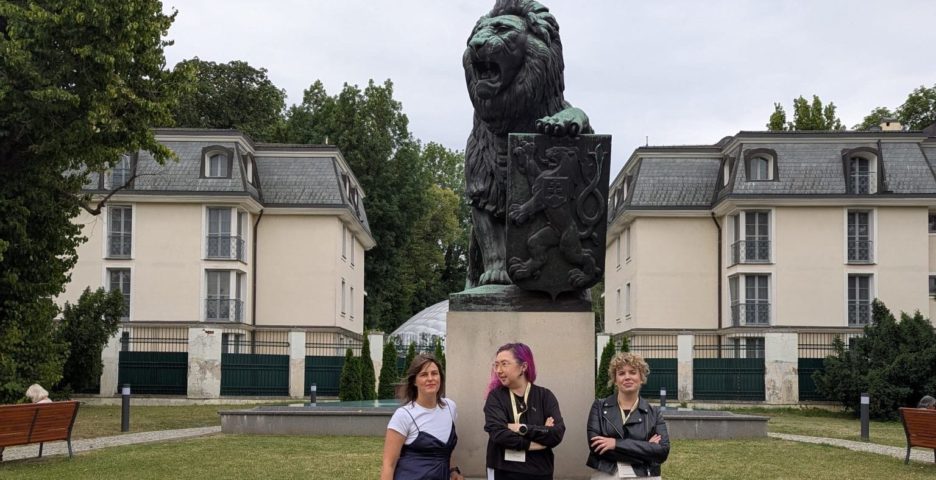From July 14 to 18, 2025, three members of our team—Magdalena Bubík, Karina Hoření, and Karolina Ćwiek-Rogalska—presented their research at the 9th Annual Conference of the Memory Studies Association, which took place in Prague, Czechia, under the theme Beyond Crises: Resilience and (In)Stability. Conferences are always a collective endeavor, and we’re happy we could be part of this one. We reconnected with long-time colleagues, forged new friendships, and had the opportunity to share our research within the SpectralRecyling project.
Magdalena presented part of her PhD study in a talk titled Two Phantom Churches, Only One Remembered: A Comparative Study of Protestant and Catholic Churches in Post-Displacement Regions. She focused on Piła, where two churches were demolished post-1945, but only one has been actively commemorated, both in the cityscape and in collective memory: the Roman Catholic one. Her analysis explored why certain religious sites are remembered while others are forgotten, shaped by memory politics, local agency, and material decay. She was part of the panel Nostalgia and Memoryscapes, alongside Ümit Fırat Açıkgöz (American University of Beirut), who spoke on Monuments, Ruins, and the Making of the Future: The Crisis of Urban Memory in Early Republican Istanbul (1923–1949), and Bjorn Krondorfer (Northern Arizona University), who presented on Testimonial and Toxic Landscapes and Memory Objects. All three talks focused on the memory in particular landscapes, where people’s individual stories cross paths with the larger projects of rebuilding, both the past and the future. The panel was moderated by Marcin Jarząbek (Jagiellonian University, Kraków).
Karina presented in the panel Conspiracy Theories, Myths, and Alternative Histories: Probing ‘Speculative Memories’ in Times of Crises, organized by Ilana Hartikainen (University of Helsinki). Her talk, Ghosts and Treasures: Stories about Post-War Property Changes in the Czech Borderlands, explored a topic she had been eager to tackle since the very beginning of our shared project. Namely, how narratives of postwar property shifts in the Czech borderlands have long revolved around the motif of treasure hunting—and how that motif has evolved. Ilana presented on A Pseudohistorical Brotherhood: Pro-Russian Sentiment in Czech Political Rhetoric During Russia’s War in Ukraine, introducing us to the concept of pseudohistory to explore how Pan-Slavism is present (and more often absent) in contemporary Czech far-right narratives. The panel also included Jeanmarie Rouhier-Willoughby (University of Kentucky), who discussed her forthcoming book on sacred landscapes in Western Siberia. The session was moderated by Tatjana Menise (University of Tartu).
Karolina presented on the final day of the conference, in a panel she co-organized with our colleagues from the MEMPOP ERC StG project, affiliated at the Institute of Ethnology, Czech Academy of Sciences. The panel was chaired by the PI of that project, Johana Wyss. Together with Jitka Králová, Laura Mafizzoli, and Ioana Brunet, Karolina explored the question of reconciliation: When is memory enough? Karolina’s talk, “My uncle used to collect everything. Now, I somehow admire him”: The Stories of Formerly German Objects Between State-Level Administration and Personal Narratives, looked at the everyday ethics of keeping, discarding, or interpreting things that come with layered pasts. She was looking for a method of dealing with entangled pasts, stemming from a case study she encountered during her fieldwork in Wałcz, Poland. Ioana Brunet shared insights from her initial fieldwork in Romanian Bukovina in a presentation titled Oktoberfest in the East, while Jitka and Laura summed up their fieldworks: Laura in Georgia, Gulag past presencing: Generational Memory and the Politics of Reconciliation in Georgia, exploring stories of reparations for Soviet-era repressions, and Jitka in Czechia, Uprootedness as a symptom of marginalisation: Case study from the Ústecký region, where she examined how the local history of expulsion is used to explain the development of the region.
Taken together, the three presentations by Magdalena, Karina, and Karolina reflect the core questions at the heart of our research team: How do material remnants—whether sacred architecture, things sought after as treasures, or everyday objects—shape post-displacement experience? What ethical, emotional, and political negotiations emerge when people confront things left behind by others? And how do individual stories, state-level frameworks, and ghostly traces intersect in the formation of new societies? These panels offered a valuable space to test ideas, refine concepts, and stay in dialogue with scholars working across geographies and disciplines. We’re looking forward to building on these conversations in the months to come.
